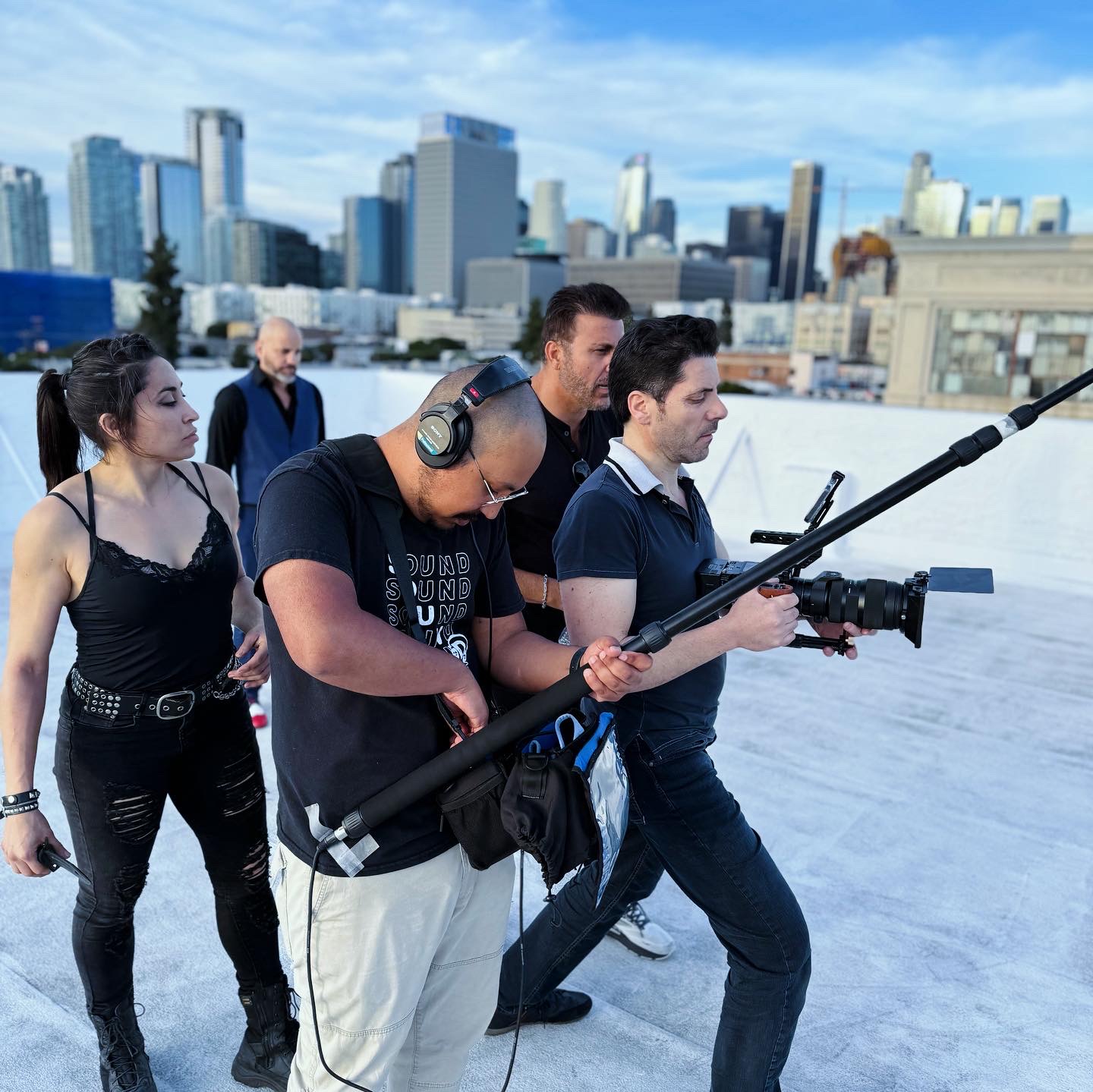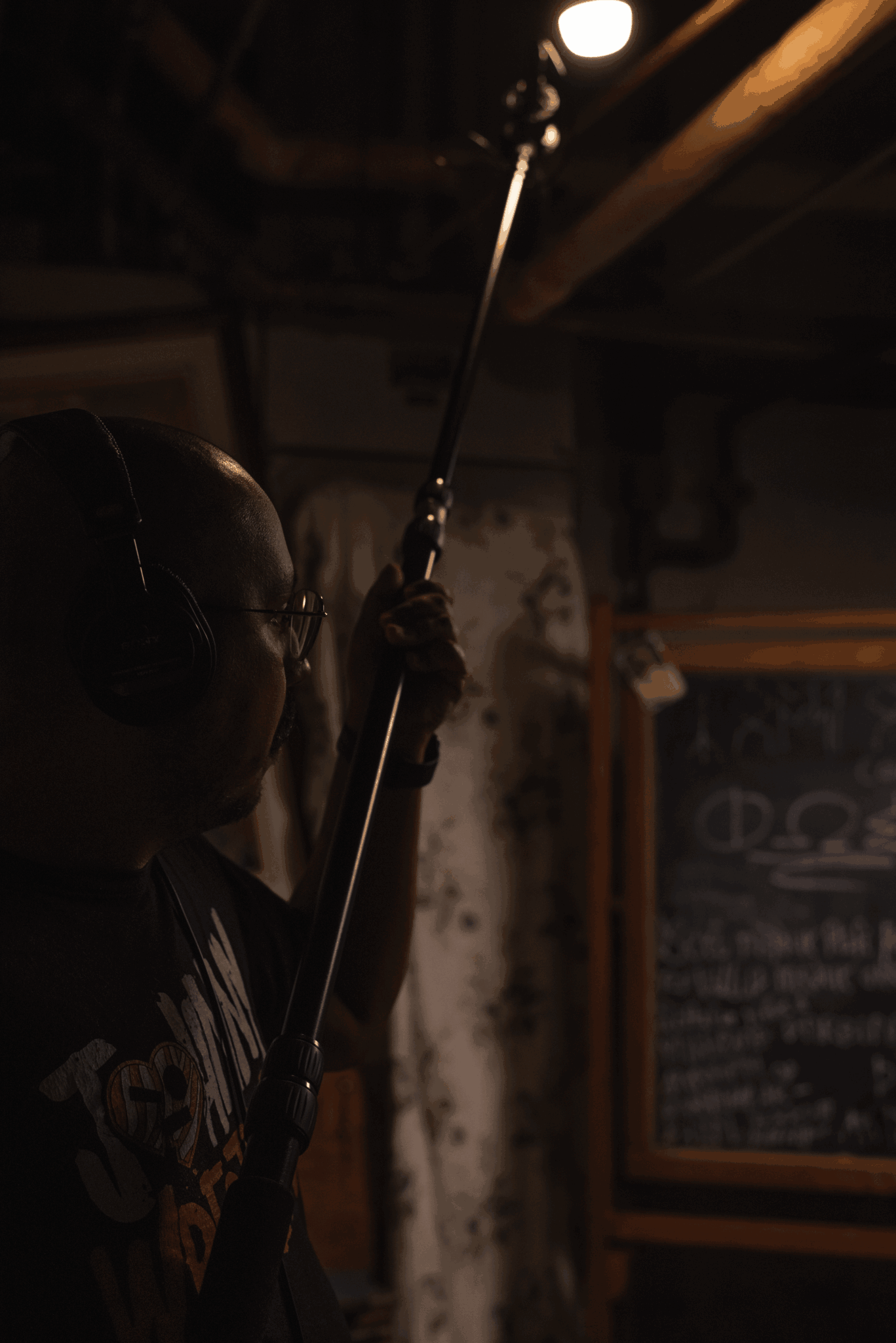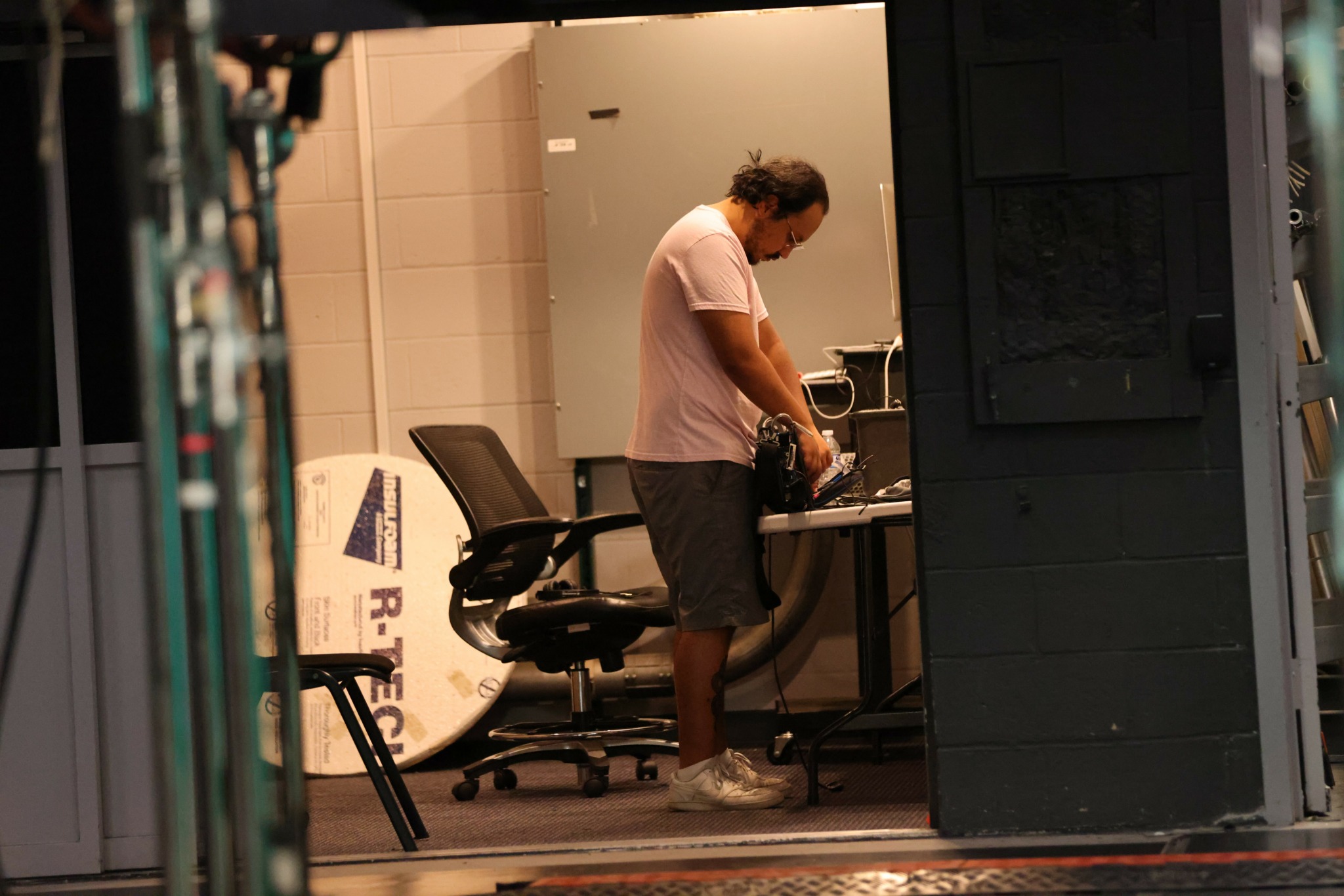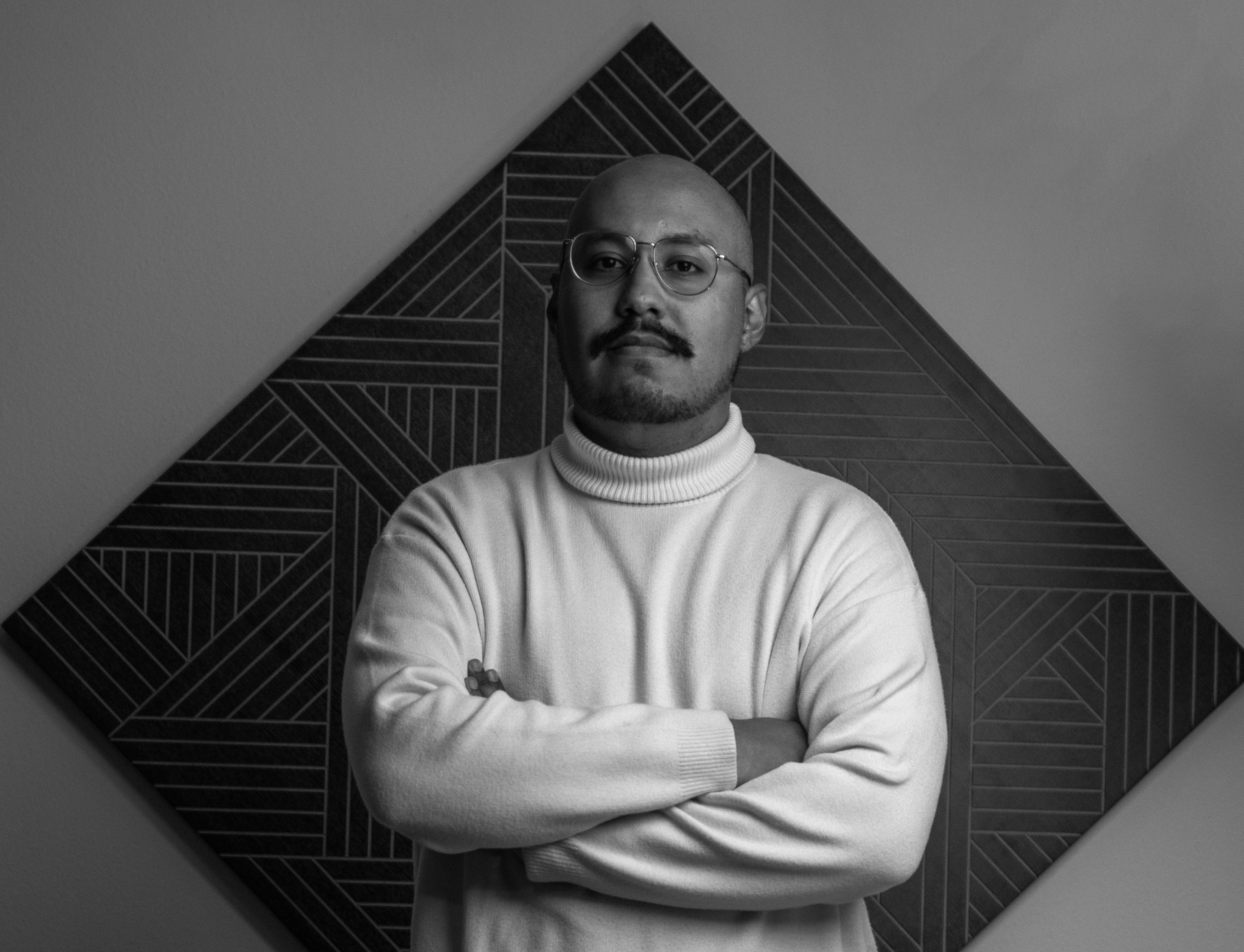We were lucky to catch up with César Fión Góngora recently and have shared our conversation below.
César , thanks for joining us, excited to have you contributing your stories and insights. I’m sure there have been days where the challenges of being an artist or creative force you to think about what it would be like to just have a regular job. When’s the last time you felt that way? Did you have any insights from the experience?
My hands picked up a camera for the first time when I was 8 years old, and in that moment, I discovered what would become my lifelong passion. The camera was a flip phone I had found around the house, and my first time directing was with a bunch of toys and LEGO figures. Unfortunately, the film industry in my home country of Guatemala wasn’t very developed at the time, which meant my passion was more of a dream than something tangible. By the time I was 18 and had to choose a college major, I knew that as much as I wanted to be behind the camera, it just wasn’t feasible as a career. So, I ended up in medical school. To this day, I’m not sure why I made that choice, but I can’t say I didn’t learn anything in the six months it lasted.
Those were some of the toughest months of my life—the stress and sheer unhappiness took a toll on my mental and physical health. Eventually, I dropped out and switched to Business, for some reason, while also attending a weekend trade school for Film, Casa Comal Escuela, which was the closest thing to an undergraduate degree I could find. I don’t regret going to business school, as I learned valuable lessons that helped me establish my own film production company and maintain a successful career as a freelance filmmaker. While I did eventually drop out of business school, I graduated top of my class in trade school, earning a Technical Diploma in Film and TV.
My professional career, however, didn’t start the way I expected. Finding employment in film was as difficult as I had imagined, with most of my early work being pro-bono or done as favors. This meant working regular jobs, like as a sales representative and in customer support at a call center. Those were truly miserable times. I tried my best to make the most of it, but sitting at a computer for over eight hours a day with only 30 minutes for lunch and a 15-minute break, all for minimum wage, is something I wouldn’t wish on anyone.
Despite all of this, I managed to do alright for myself at first. Guerrilla-style filmmaking was my game—just me and my camera, shooting whatever I could find. I wrote, produced, shot, edited, and even acted in my own films. I also delved deep into documentary filmmaking, finding considerable success in both fields. My films have been shown and awarded at film festivals around the world, in places like Mexico, Panama, the USA, England, Italy, Nigeria, and my native Guatemala. I made it work somehow, and that gave me the confidence I needed. COVID put a damper on my plans, but it also opened a new door. A local college, Universidad DaVinci, partnered with my old trade school to establish a program never before seen in the country. After navigating online school, I graduated from the first-ever Bachelor’s Degree in Film and TV class in Guatemala.
Right after that, I took a leap and moved to LA to study at the New York Film Academy, where I completed a degree in Screenwriting. After graduating, I started working as a freelance Production Sound Mixer, and ever since, I’ve worked with brands like Canon, video game companies, and networks such as Netflix and Amazon Prime—and I haven’t looked back since.
I love my job, and being on any set is one of the best feelings I’ve ever had. So yeah, you could say I’m pretty happy with how my life turned out.

César , before we move on to more of these sorts of questions, can you take some time to bring our readers up to speed on you and what you do?
My work in film has taken many forms, but my main focus lies in screenwriting and sound production. Over the past decade, I have written and directed several of my own award-winning films, as well as worked on set for feature films, short films, television shows, and commercials as a production sound mixer. Both of my passions are on opposite ends of the same spectrum: screenwriting is one of the most important parts of pre-production, while being the “sound guy” on set is one of the heftiest—and sometimes overlooked—jobs.
As I mentioned earlier, I first started back in my home country, mostly with self-produced films and documentaries. Every now and then, I did find bigger gigs, such as reality TV shows and a couple of PA positions on feature films, but nothing consistent. It wasn’t until I moved to Los Angeles that I was able to get my foot in the door. Even then, finding a starting point wasn’t easy, but I made do with what I could find.
I started off doing sound for various student and independent films, establishing myself as a reliable professional by always being on time and staying one step ahead. My strategy for problem-solving is simple: I handle my own problems and only let you know if I can’t solve them. As surprising as it may sound, 12 hours isn’t enough time when it comes to film, so I do everything I can to prevent delays, and if there is one, I make sure it’s not my fault.
One of the biggest lessons I’ve learned over time is that attitude is everything when you work in the film industry, not just toward your job but toward your peers as well. We often work over 12 hours on our feet, so maintaining the right mindset throughout the day is easier said than done. My goal is to always deliver my best work on set while also helping others get through the day as best I can. I love what I do, and helping others enjoy their job not only benefits the production but also strengthens the relationships I build with them. After all, if I’m going to spend 12 hours looking at your face, I might as well be friendly.
This industry—and by default, this job—can be tough to navigate, but I’ve learned to handle it as best I can. More often than not, I’m a one-man department, handling sound mixing and operating the boom pole, which takes a hefty toll on my body. On top of that, I have everyone’s voice in my ears all day, which can get old quickly. Even so, I love my job. I love being on set, meeting new people, and seeing (and hearing) films come to life in front of me. It’s what I’ve always wanted to do.
It’s taken me a long time—10 years, to be exact—since I took my first baby steps into film back in my home country, but I made it. I’ve accomplished my dreams, and now I have new ones to reach

What’s a lesson you had to unlearn and what’s the backstory?
For the longest time, the only way I’d get any kind of project off the ground was if I did it by myself. It was tough finding a crew, and whenever I did, we couldn’t get together for 12 hours at a time to work, so I had to wear every single hat on set and hope for the best. I trust my own ability to tell a story, but I’d be lying if I said it was easy back then. One of the reasons I leaned towards documentaries so much was because that was the easiest route to take when working alone—just me and a camera.
I learned a lot through that, but eventually, I realized that even if I could do everything by myself, I didn’t have to. It took me a minute to get out of the mindset that I was the only one capable of getting things done, and I had a lot of growing up to do in the process. Thankfully, I recognized I was wrong; otherwise, I don’t think I would have gotten anywhere.

For you, what’s the most rewarding aspect of being a creative?
We do this for the love of the game. As I was starting out on this whirlwind of a journey, my main goal was, and still is, to reach people. Film is a beautiful thing; it can be happy, sad, scary, light, or heavy. It is not just one thing—it’s so much more than that, and I hope that, with my work, I can help people see that more clearly. As corny as it sounds, I love being on set, no matter where or how long I have to be on my feet. It has always been my goal to prove that my and my family’s efforts and sacrifices weren’t in vain, and to validate the people who have supported me. Getting to do what I do is the biggest reward I could have ever hoped for.
Contact Info:
- Website: https://calaverafilm.myportfolio.com/
- Instagram: https://www.instagram.com/cafg__96/
- Youtube: https://www.youtube.com/channel/UC9s-5vz5lg8GMUuKok2g2kQ
- Other: IMDB: https://www.imdb.com/name/nm14649208/


Image Credits
John Soto III
Victor Jones Valverde
Beatriz Santamaria Pinha


